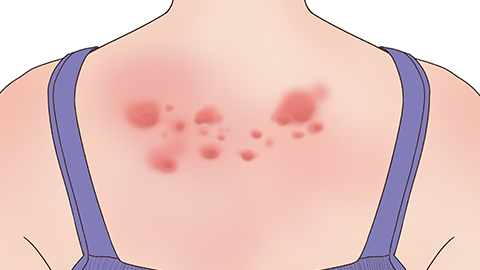What Five Types of Foods Should Be Avoided with Urticaria?
Generally speaking, there is no established concept of "five foods that cannot be eaten with urticaria." However, urticaria patients are usually advised to avoid certain foods such as mangoes, sea shrimp, crabs, pineapples, and chili peppers. Detailed explanations are as follows:
1. Mangoes
Mangoes contain allergenic proteins and urushiol-like substances. These components can be recognized as harmful by the immune system, triggering allergic reactions. In individuals with urticaria, consuming mangoes may worsen symptoms such as skin wheals and itching, or even cause new allergic manifestations. Therefore, mangoes are not recommended.
2. Sea Shrimp
Sea shrimp are common seafood allergens. The foreign proteins in shrimp can activate the immune system to produce antibodies and release histamine. Histamine can cause skin vasodilation and increased vascular permeability, thereby worsening urticaria symptoms such as wheals and itching, which is detrimental to disease control. Therefore, shrimp should be avoided as much as possible.

3. Crabs
Crabs, similar to sea shrimp, contain high levels of foreign proteins that can stimulate the immune system and cause allergic reactions. In individuals with urticaria, consuming crabs may lead to increased skin redness, intensified itching, and even systemic discomfort such as abdominal pain and diarrhea, which is not conducive to alleviating allergic symptoms. Therefore, crabs are not recommended.
4. Pineapples
Pineapples contain bromelain, an enzyme that can not only irritate the oral mucosa but also act as an allergen, triggering abnormal immune responses. In individuals with urticaria, eating pineapples may lead to increased skin wheals, worsening of itching, or even severe allergic reactions such as difficulty breathing. Therefore, pineapples should be avoided as much as possible.
5. Chili Peppers
Chili peppers are spicy and irritating foods. The capsaicin they contain can stimulate skin nerve endings, intensifying itching. Additionally, spicy irritation may affect immune system stability, prolonging allergic reactions and hindering the recovery from urticaria. Therefore, chili peppers must be avoided.
In addition, urticaria patients should also avoid foods such as durian and scallops as much as possible. At the same time, it is important to keep a food diary in daily life to identify personal allergens, maintain skin cleanliness, and avoid scratching or other forms of irritation.




